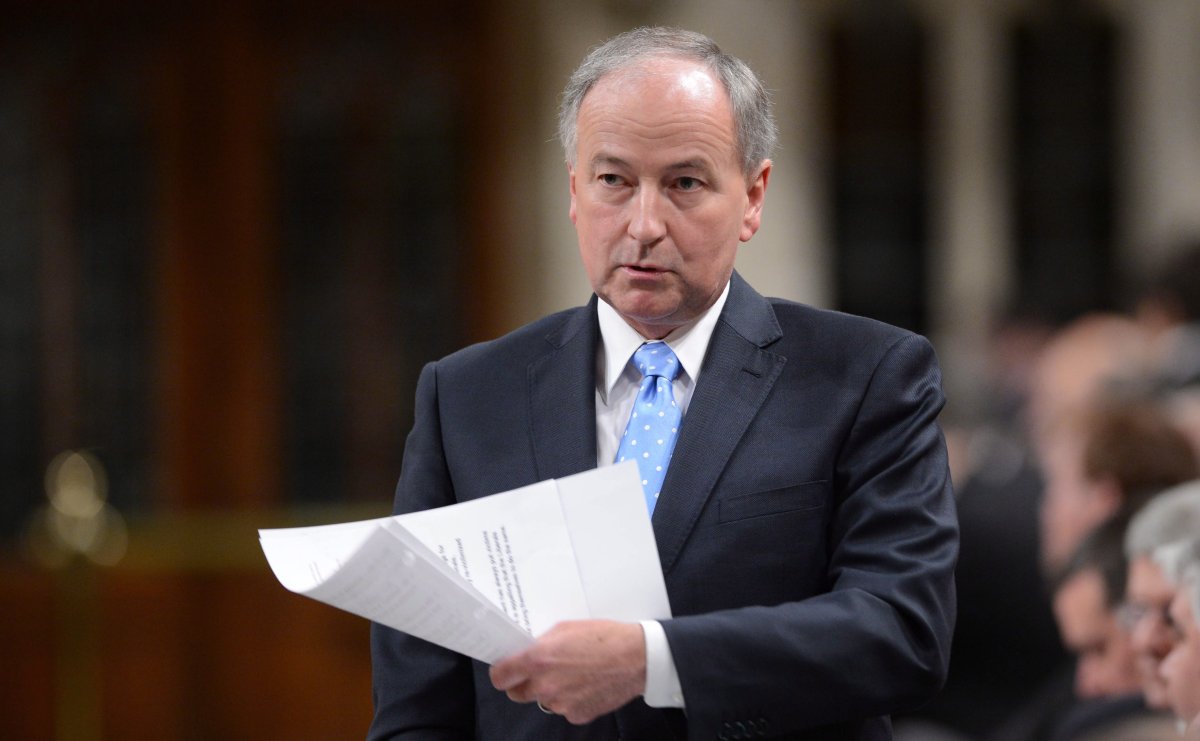OTTAWA – Members of Parliament studying a bill that would make major changes to the not criminally responsible law are reviewing the wrong data about recidivism even though the Conservative government has had the corrected numbers since March, according to researchers.

Patrick Baillie, a Calgary-based psychologist involved in the research, said he was surprised MPs are still using a November 2012 version of the report which he says contains dramatically incorrect figures.
“If they don’t have the right information, then they need to pause and get that information and review it before proceeding,” he said.
As recently as last week, Conservative MPs were still citing old figures in the committee studying the legislation, Bill C-54.
Justice Minister Rob Nicholson’s office said it notified Parliament that a “significantly amended version” of the report was provided to the justice department on March 18.
“The fact is, this legislation will contribute to keeping communities safer by making public safety the paramount consideration in the review board decision-making process, creating a high-risk designation, and enhancing victims involvement,” said Nicholson’s spokeswoman Julie Di Mambro.
But Di Mambro said the government never tabled the new report after researchers said they discovered a coding error that significantly alters key statistics.
Opposition members are crying foul.
- What is a halal mortgage? How interest-free home financing works in Canada
- Capital gains changes are ‘really fair,’ Freeland says, as doctors cry foul
- Budget 2024 failed to spark ‘political reboot’ for Liberals, polling suggests
- Canada will take bigger economic hit than U.S. if Trump wins election: report
“This kind of dissembling has the effect of misleading Parliament and misleading Canadians,” said Liberal MP Irwin Cotler, who sits on the justice and human rights committee studying the bill.
“The evidence that they are sharing with the committee and Parliament is simply not the correct evidence.”
Bill C-54 would create a new high-risk category that would hold mentally ill offenders longer without assessment reviews and make it far more difficult for them to leave psychiatric facilities, even under escort. Changes also include mandatory notification of victims when NCR individuals are released.
Nicholson and other MPs have cited statistics used in the initial report to make a case for the bill.
But in March, it was discovered the initial report contained errors, said the main researcher from McGill University, Anne Crocker. The mistake inflated the number of previous findings of a not criminally responsible designation, said Baillie. As soon as she discovered the error, Crocker said she notified the department.
The original report said 38.1 per cent of sex offenders found not criminally responsible and accused of a sex offence had at least one prior NCR finding; that number was changed in the March report to 9.5 per cent.
It said 27.7 per cent accused of attempted murder had one NCR finding; that was changed to 4.6 per cent, and 19 per cent accused of murder or homicide with one prior NCR was changed to 5.2 per cent.
The overall figure of 27.3 per cent of NCR accused having a past finding of NCR was changed, in the new report, to 6.1 per cent.
Baillie blames the mistake on the government’s hastiness to pass the bill.
“I think it speaks to the fact we’re trying to rush through an important piece of legislation,” he said.
Di Mambro said the minister has stopped citing the statistics from the report altogether.
She questioned why researchers changed their numbers 38 days after the legislation was introduced and after members of the mental health community came out against this bill.
“It certainly raises more questions, especially about the quality of the work,” said Di Mambro.
Robert Goguen, parliamentary secretary to the minister of justice, said the numbers now “contradict themselves.”
“Therefore we consider them both unreliable,” he said.
“We don’t know if the mistake was made in the first or the second (report), that’s why we say they’re unreliable.”
Nicholson spoke to the bill on March 1, before the researchers said they notified the department about the mistakes.
But since March, Conservatives have continued to cite the statistics in both the House and committee. As recently as May 27, Natural Resources minister Joe Oliver spoke to the bill at second reading and used the old statistics.
“It is very important that when we talk about what the risk to the public is, we try to get as close as we can to the facts,” said Oliver.
And last week in committee, Conservative Scott Armstrong questioned a witness using statistics from the old report.
Armstrong said in an interview he was only aware of the November 2012 report.
“If it was tabled in the House of Commons, I assumed it was accurate,” he said.
But he added the committee process, including interviewing witnesses, helps to clarify the information.
NDP justice critic Francoise Boivin said she was not aware of two reports.
“It’s hard to say what are the real statistics,” she said. “I would expect (the minister) to come clear with the situation.”
Mental health professionals, including the Canadian Psychiatric Association, say the changes are unnecessary and counter-productive, although there is widespread support for mandatory victim notification.
But those affected by crimes say the bill might give shattered families some relief.
Testifying at committee Monday, Stacy Galt, whose cousin’s children were murdered by their mentally ill father Allan Schoenborn, said holding the hearings only every three years would give victim’s families some respite.
But Baillie noted that all the recent high-profile tragedies that are driving the government legislation – the Schoenborn case, a bus beheading in Manitoba, a doctor who killed his kids in Quebec – were committed by people “none of whom previously had been found NCR and each of whom had been involved in their provincial health care system.”
– with files from the Canadian Press



Comments